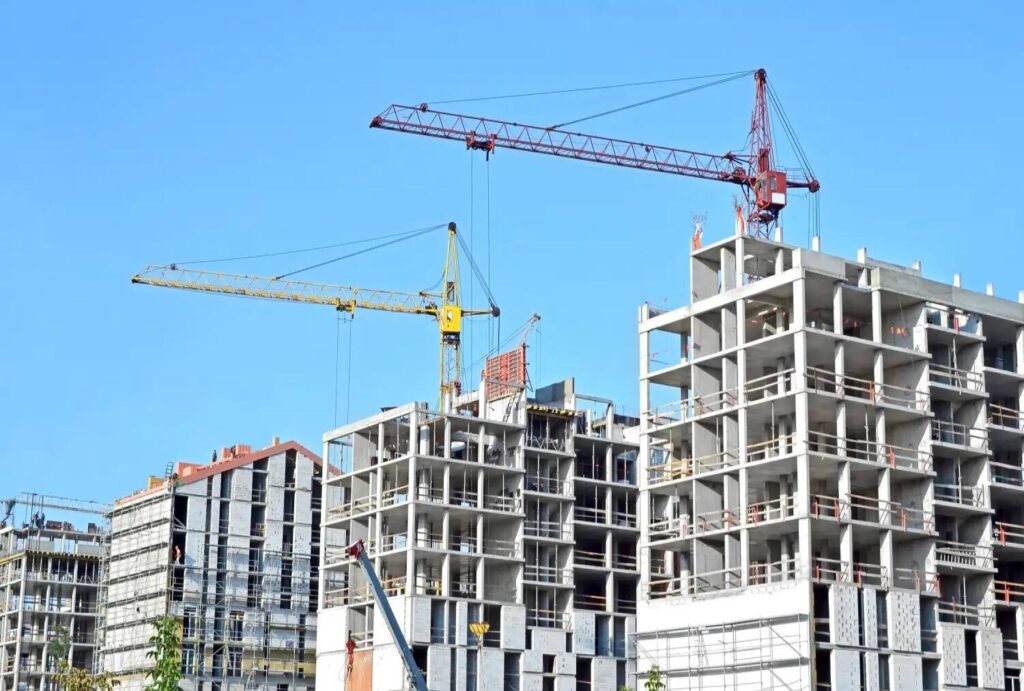
With Budget 2026 due to be presented to the Dáil on October 7, estate agent Hooke & MacDonald has called on government to take “practical, targeted measures” to address Ireland’s most acute housing bottleneck: the delivery of new apartments.
In a pre-budget submission entitled Four Steps to Unlock Apartment Delivery, the firm sets out a framework to help government bridge the viability gap, stimulate demand in urban centres, and stabilise the rental market, while supporting the national housing plan’s ambition to ramp delivery from 41,000 homes in 2025 to 60,000 a year by 2030.
“The government’s targets are ambitious but achievable,” the submission notes. “To meet them, apartments must be unlocked at scale.”
The viability gap
Hooke & MacDonald points to research by the Society of Chartered Surveyors Ireland showing that development costs for city apartments remain higher than achievable sales values in many locations. This, the firm says, is why so many schemes with planning permission remain stalled.
The first recommendation is a temporary reduction in Vat on new apartment construction, from 13.5 per cent to 9 per cent. The firm stresses that such a cut should be time-limited, tied directly to output, and “not designed to create windfall gains, but to enable viable construction of much-needed homes”.
Stimulating demand
While the Help to Buy scheme has supported more than 50,000 claims and helped 108,000 people into suburban homes since 2017, apartments have not benefited in the same way.
The submission calls for an additional Help to Buy credit for apartment purchasers, alongside adjusted thresholds, to broaden demand and improve sales absorption in urban schemes.
The submission reads: “City units frequently breach scheme price caps, and higher costs reduce affordability. A specific top-up for apartment purchasers, combined with adjusted thresholds, would broaden demand and improve absorption in urban schemes.
“In effect, it would apply a policy that has proven effective for houses to the segment of the market where supply is most urgently required.”
Reviving investment
The third step is the introduction of a modernised version of Section 23 relief: a measure first introduced in 1981 which fuelled the delivery of apartments and town houses throughout the 1980s and 1990s.
Hooke & MacDonald argues that a new iteration, restricted to Dublin, Cork, Galway and Limerick, and tied to long-term letting, would “once again unlock individual investment without repeating past mistakes”.
The weakness in the original scheme, according to the agent, was that “reliefs were applied too widely, which led to oversupply in weaker locations”.
Properly targeted, the firm contends, it could complement institutional investment while ensuring new apartments remain in the rental pool.
Supporting small landlords
The fourth intervention focuses on stemming the exodus of private landlords.
According to the Residential Tenancies Board, more than 40,000 have left the market since 2016. The submission points to tax complexity, compliance burdens and reduced deductibility as key drivers of that retreat.
The firm recommends restoring full interest deductibility, noting that New Zealand will reinstate 100 per cent deductibility in 2025, while Germany and the Netherlands already offer reliefs to support long-term rental supply.
Hooke & MacDonald also highlights the need for simplified compliance for non-resident landlords and clarified re-entry rights for owners.
“Since July 2023, non-resident landlords have been subject to a withholding tax regime that still requires either tenant withholding or the appointment of a collection agent,” said the agent.
“Allowing direct compliance through Revenue’s online system would simplify matters without reducing compliance.
“A package of restored deductibility, clarified re-entry rights and modest reliefs for long-term letting would help stem the outflow and stabilise the private rental market.”
Time to act
For Hooke & MacDonald, the measures are neither radical nor speculative. Instead, they are “practical, proven elsewhere and grounded in the realities of delivery”.
With the viability of apartments still the weakest link in Ireland’s housing chain, the submission frames Budget 2026 as a defining moment.
“A temporary Vat cut to close the viability gap, a Help to Buy credit tailored to apartments, a modernised Section 23 for cities, and fairer treatment of small landlords would together tilt the market back towards delivery,” it concludes.
“If Ireland is serious about meeting its housing targets, now is the time to get apartments built.”
Source: Business Post